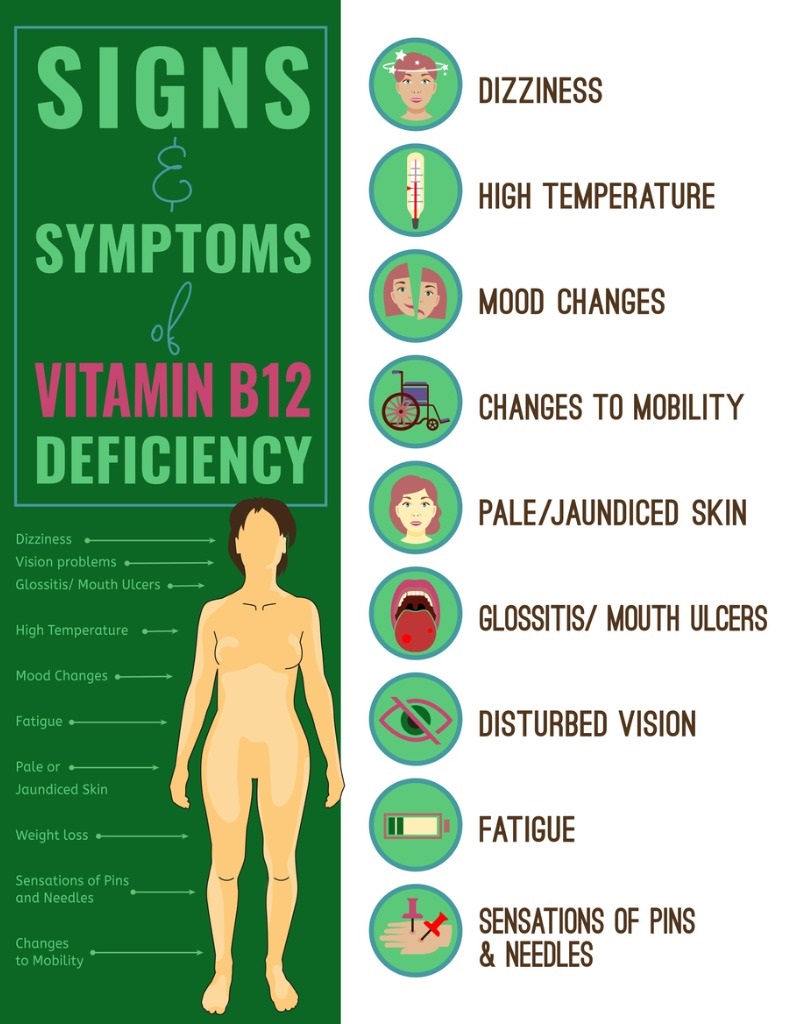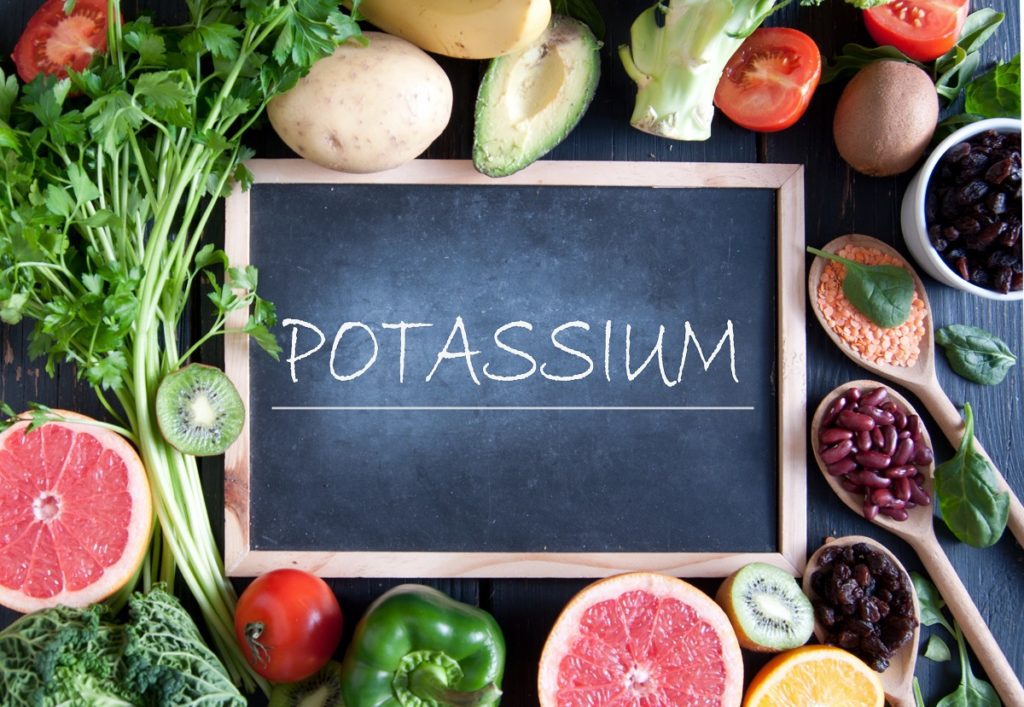Most of you know about the importance of eating healthy raw foods such as raw milk and fermented foods made from raw vegetables. Other examples include mixed salads and coleslaw, which provide a major element of a healthy diet: enzymes. And let’s not forget bile, a vital substance for digesting fats and avoiding constipation and other gut issues.
All of these essential components specifically help the body breakdown foods, which are then absorbed through our intestinal tract to nourish and preserve our overall health. If you are experiencing any of the symptoms I discuss in this blog post, there’s a good chance that your digestive fire is impaired. This is where the “Intrinsic Factor” comes in. So please keep reading, even if you think you have memorized most of the digestive process. (Smile)
Symptoms of an Intrinsic Factor Deficiency
The website for the University of Florida Health notes that “a lack of intrinsic factor leads to pernicious anemia and vitamin B12 deficiency, which can cause anemia and brain and nervous system (neurological) problems.”
Additionally, most people with general intestinal problems experience the symptoms as outlined in the article “How to Increase Your Digestive Fire” by Jeannie Oliver, CHC, CPT. These symptoms are often misdiagnosed, and treatment is then misdirected. Another important observation states, “Surgical removal or bypass of the stomach and certain other health conditions can also cause you to stop making intrinsic factor.”
That should send a few chills up your spine and alert you to replenish your Intrinsic Factor. Following are the symptoms that I quote directly from Jeannie Oliver’s article mentioned above:
- Skin conditions such as acne, eczema, rosacea, etc.
- Food and environmental sensitivities or allergies
- Heartburn, acid reflux, and GERD
- Gas and burping
- Undigested food in stools
- Stomach upset or pain after meals
- SIBO (small intestinal bacterial overgrowth)
- Infections (yeast, bacteria, parasites)
- Diarrhea or constipation
- Nutrient deficiencies (especially vitamins A, B, D, E, K and coenzyme Q10)
- Anemia
Understanding More About the Intrinsic Factor
Allow me to quote from the Dr. Rath Research Institute: “After 50, the body’s capacity to absorb many essential nutrients is weakened because the stomach produces less gastric acid and other cofactors that are needed for effective absorption of micronutrients. One important cofactor is called Intrinsic Factor. It is a protein secreted by the cells lining the stomach and it is essential for the absorption of vitamin B12 in the intestines. Our immune system operates as a finely orchestrated mechanism, and any dysfunction in even one part of it can affect the entire system. The immune system cannot function effectively without Intrinsic Factor, and it is vital that Intrinsic Factor is included in the supplements one takes.”
(See my recommended supplements below.)
The Role of Vitamin B12 in the Intrinsic Factor
Before we talk about the vital need of vitamin B12, we need to understand more about the chemical makeup of this awesome substance. The following quote is taken from this fact sheet put out by the National Institute of Health. It may be of particular interest to practitioners and other health professionals, but it offers an excellent description of the components that make up this miraculous vitamin. (Please refer to the article for links to the citations below.)
“Vitamin B12 is required for the development, myelination, and function of the central nervous system; healthy red blood cell formation; and DNA synthesis [1,4,5]. Vitamin B12 functions as a cofactor for two enzymes, methionine synthase and L-methylmalonyl-CoA mutase [1–3,5]. Methionine synthase catalyzes the conversion of homocysteine to the essential amino acid methionine [1,2]. Methionine is required for the formation of S-adenosylmethionine, a universal methyl donor for almost 100 different substrates, including DNA, RNA, proteins, and lipids [3,5]. L-methylmalonyl-CoA mutase converts L-methylmalonyl-CoA to succinyl-CoA in the metabolism of propionate, a short-chain fatty acid [2].”
What Nutrients Does the Stomach Need to Make Intrinsic Factor?
The short answer is potassium. The parietal cells in the stomach produce intrinsic factor and hydrochloric acid if the stomach is healthy and if there is enough potassium in the diet. (The whole food supplement Zypan from Standard Process provides HCl and helps the stomach heal if it’s not up to the job.) The vagus nerve is how our parietal cells are able to make Intrinsic Factor and HCl. In turn, the vagus nerve functions properly thanks to the mineral potassium. (See here for a great list of high-potassium foods.)
8 of my Favorite Vitamin B12 Foods
You can easily search online for more detailed information on the following foods. You can also find full list of other nutrient dense foods at TraditionalCook.com.
- Animal liver and kidneys
- Clams
- Sardines
- Beef
- Tuna, trout, and salmon
- Nutritional yeast
- Raw whole milk
- Organic eggs from pastured chickens
Superior B12 Supplementation
If you simply cannot keep up with the specific food recommendations mentioned above, I have great news for you. Standard Process offers the best product you can consume with the Intrinsic Factor: Cataplex B12.
As noted in the Clinical Reference Guide: “When B12 was first introduced, B12 had to be injected into the patient. Dr. Royal Lee scratched his head and thought there must be a reason for this. It is not that an enzyme destroys B12 in the stomach, as some felt. Rather, in a deficiency of certain factors in the stomach. B12 simply is not assimilated, so Dr. Lee put those specific synergistic factors into Cataplex B12.”
[Please note: the Clinical Reference Guide is available only to practitioners and members of the International Foundation for Nutrition and Health (IFNH).]
And the rest is history! We are therefore extremely fortunate to have Intrinsic Factor in this one supplement! I would nonetheless encourage you to eat the foods listed above and be aware of the fact that without the Intrinsic Factor your intestinal health is missing a major component that you need for your total wellbeing.
In closing, I would like to ask your cooperation in forwarding this article to friends and family who may have any of the symptoms discussed above. In my opinion, it is long overdue that a basic explanation of the Intrinsic Factor be penned into a short, simple, yet comprehensive article. I hope you’ve not been disappointed.
[xyz-ihs snippet=”Begin-Authors-Note”]Afterthoughts from the Traditional Cook
The following are quotes from “All Disease Begins in the Gut,” a blog post written by Crystal Springe, NTP, author at S.A.G.E. Holistic Health and Wellness Center.
“Hippocrates believed that all disease begins in the gut, so an imbalanced digestive system is the root cause, or at least a huge contributor, to many diseases and symptoms. That also means all health begins in the gut, so restoring gut health should be the first step you take towards restoring health.”
The blog post goes on to discuss some of the essential roles the digestive system plays in our health. For example:
- The digestive system absorbs nutrients into the bloodstream that we need for energy, growth, and cell repair: “Each nutrient plays a crucial role in overall wellbeing. Just one nutrient deficiency can make it impossible to maintain homeostasis. A nutrient-dense diet does no good if digestion and absorption are sub-par.”
- 2. It comprises 70–80 percent of our immune system: “It’s important to have a majority of the immune system in the digestive system because it is our bodies’ first encounter with the outside world. When we eat inflammatory foods or have chronic stress, it triggers an immune response causing inflammation in the intestines. Unmanaged digestive inflammation increases intestinal permeability, leading to leaky gut and autoimmune disease.
“Having the right balance of microbes as part of your microbiome keeps your immune system strong and healthy. Your microbiome can also help prevent diseases far beyond the gut! Studies now show that up to 90% of all diseases can be traced back to the gut microbiome.”
- It houses the microbiome: “The microbiome is a lot like Earth’s ecosystems, the bacteria interact with one another within the community they live in (our gut). Throughout our lives, we help shape our own microbiomes. They change in concentration depending on their surroundings. So they are very reactive to the foods you eat, how you sleep, your level of stress you and use of medications/antibiotics. These bacteria play a role in boosting immunity, keeping our digestive systems running smoothly, balancing our hormones and keep our brains working properly.”
- It produces serotonin and other neurotransmitters: “Gut-friendly bacteria can help manage neurotransmitter activity, which makes them natural antidepressants and anti-anxiety organisms.”
Personal comment: Awesome stuff, isn’t it?
[xyz-ihs snippet=”End-Authors-Note”]Disclaimer from Maria Atwood, CNHP: I am a Certified Natural Health Professional (CNHP) not a medical doctor. I do not diagnose, prescribe for, treat, or claim to prevent, mitigate, or cure any human diseases. Please see your medical doctor or health practitioner prior to following any recommendations I make in my blog posts or on my website.
Images from iStock/dolgachov (main), CharlieAJA (potassium), newannyart (B12).




